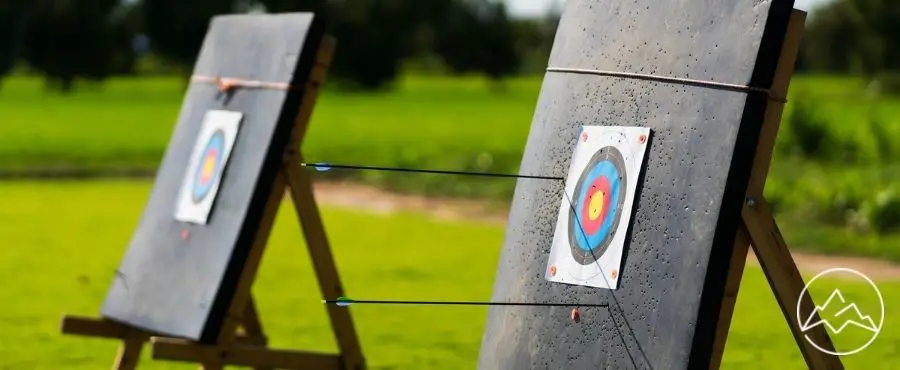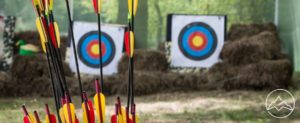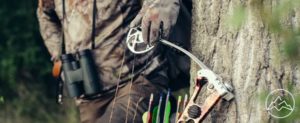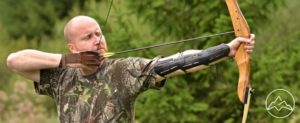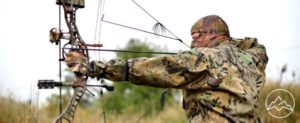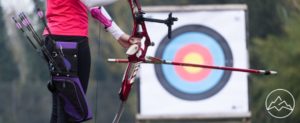In the realm of outdoor pursuits, bow hunting stands as a captivating and challenging activity that requires skill, precision, and adherence to legal requirements. Before venturing into the wilderness with a bow in hand, obtaining a bow hunting license is a crucial step that ensures both legality and competence. This endeavor serves not only as a legal obligation but also as a means to promote wildlife management and the preservation of natural resources. By embarking on the journey to obtain a bow hunting license, hunters demonstrate their commitment to responsible hunting practices and their dedication to the conservation of the environment. Through a comprehensive process that varies by state, hunters must fulfill specific requirements and undergo a hunter education course to demonstrate their knowledge and proficiency. By delving into the intricacies of the licensing process, aspiring bow hunters can pave the way for a fulfilling and lawful hunting experience.
Key Takeaways
- Obtaining a bow hunting license is crucial for legality and competence.
- The license promotes wildlife management and preservation of natural resources.
- The licensing process varies by state and includes specific requirements and a hunter education course.
- Having a bow hunting license demonstrates commitment to responsible hunting practices and conservation.
What is it?
A bow hunting license is a legal requirement in most states or provinces and is obtained through a series of steps that vary by state, allowing hunters to become knowledgeable and proficient in archery hunting while also helping state agencies manage wildlife populations and conserve natural resources. Obtaining a bow hunting license has its pros and cons, as well as benefits and restrictions. On the positive side, a bow hunting license ensures that hunters have the necessary knowledge and skills to engage in bow hunting safely and responsibly. It also helps state agencies regulate hunting activities, ensuring sustainable wildlife populations and the conservation of natural resources. However, there are also restrictions associated with a bow hunting license, such as bag limits and possession limits, which regulate the number of animals a hunter can harvest and possess. Overall, a bow hunting license serves as an important tool in promoting responsible and sustainable bow hunting practices.
Requirements and Eligibility
Prerequisite qualifications and criteria must be met in order to be eligible for acquiring a license for bow hunting. One of the main requirements is the completion of a hunter education course, which varies in type depending on the state. These courses provide hunters with the necessary knowledge and skills to safely and responsibly engage in bow hunting activities. Additionally, obtaining a bow hunting license offers several benefits. Firstly, it ensures that hunters are knowledgeable about hunting regulations and practices, promoting ethical and sustainable hunting. Secondly, it allows state agencies to effectively manage wildlife populations and conserve natural resources. Lastly, having a bow hunting license demonstrates a commitment to the sport and a dedication to becoming proficient in archery skills. Overall, meeting the requirements and obtaining a bow hunting license is a crucial step towards becoming a responsible and skilled bow hunter.
Process and Application
The process for acquiring a license for bow hunting involves completing a hunter education course and submitting an application to the relevant state agency. The bow hunting license application typically requires the applicant to provide personal information, such as name, address, and contact details. Additionally, applicants may need to provide documentation to prove their eligibility, such as proof of age and residency. This documentation process ensures that only qualified individuals are granted a bow hunting license. It is important for applicants to carefully review the application requirements and gather all necessary documents before submitting their application. Failure to provide accurate information or meet the documentation requirements may result in delays or rejection of the application. Once the application is submitted and approved, the applicant will receive their bow hunting license, allowing them to legally engage in bow hunting activities.
Frequently Asked Questions
Are there any age restrictions for obtaining a bow hunting license?
Age restrictions for obtaining a bow hunting license vary by state. In many states, the minimum age to obtain a bow hunting license is 12 or 14 years old. However, some states have no minimum age requirement. It is important to note that age restrictions are in place to ensure the safety of young hunters and to ensure they possess the necessary skills and knowledge to engage in bow hunting responsibly. Safety requirements for bow hunting include completing a hunter education course and demonstrating proficiency in archery skills.
Can I use my bow hunting license in multiple states?
Bow hunting license reciprocity refers to the recognition of a bow hunting license obtained in one state by another state. Unfortunately, most states do not offer reciprocity for bow hunting licenses. Therefore, if you wish to hunt in multiple states, you will generally need to obtain a separate bow hunting license for each state. It is important to familiarize yourself with the specific regulations and requirements of each state you plan to hunt in, as they may vary.
Are there any specific equipment requirements for bow hunting?
Bow hunting equipment requirements and regulations vary by state. Generally, bow hunting regulations specify the type and draw weight of bows, arrows, and broadheads that can be used. Some states may require specific features such as mechanical safety devices or fluorescent arrow wraps. Regulations may also cover the use of additional equipment like sights, stabilizers, and releases. It is essential for bow hunters to familiarize themselves with the specific regulations in their state to ensure compliance and ethical hunting practices.
Do I need to renew my bow hunting license annually?
Bow hunting licenses typically need to be renewed annually. The validity period of a bow hunting license varies by state, but most require hunters to renew their license each year. It is essential to keep track of the expiration date and renew the license on time to ensure compliance with hunting regulations. Failure to renew the license can result in fines or penalties. Therefore, it is important for bow hunters to stay informed about the renewal process and adhere to the state’s requirements.
Are there any special considerations for hunting on private land with a bow hunting license?
When hunting on private land with a bow hunting license, there are certain special considerations to keep in mind. Private land hunting regulations may vary depending on the state or province, so it is important to familiarize yourself with the specific rules and requirements. Additionally, bow hunting safety tips should always be followed to ensure a safe and successful hunting experience. It is crucial to respect the landowner’s property and obtain proper permission before hunting on private land.
Conclusion
Obtaining a bow hunting license is a crucial step for hunters, ensuring their knowledge and proficiency in the activity while contributing to wildlife management and conservation. The process varies by state, but typically requires passing a hunter education course. Hunters should visit their state’s wildlife website to familiarize themselves with laws, courses, and license options. It’s important to distinguish licenses from tags, with the former required prior to hunting. Following local rules, joining the archery community, and obtaining a bow hunting license are essential for legally hunting with archery equipment.

